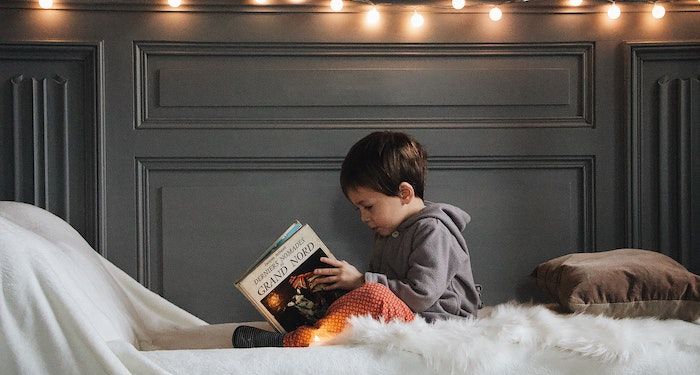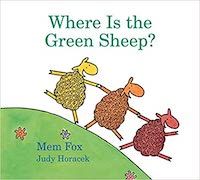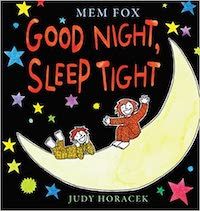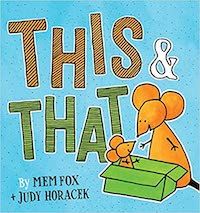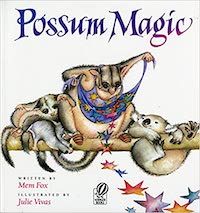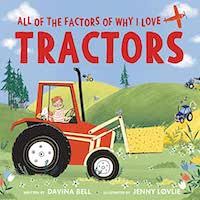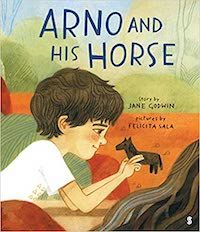Five years ago, I packed my bags and moved to America from Australia. Since I moved here, I’ve gotten married and had two children. Child the Elder is 3 years old and Child the Younger is 9 months. Although I do think of the house and neighbourhood we live in as home, America as a country is not home. Australia is. It makes me sad that my children, who hold citizenship of both countries, will not have the same connection to my home country as I do.
Because we can’t be in two places at once, and travel back there is hard (first because travel anywhere with a toddler and baby is hard, and second because the pandemic and travel restrictions are showing no signs of abating), I’m doing the next best thing to introduce Australia to my kids: reading them books.
I’m using books to combat my own homesickness and also to introduce some level of Australianness to them. It’s a very small thing. I’m not reading them factual “birds of Australia” or Australian history books. But to my toddler I’m reading books that have illustrations clearly set in Australia – you see it when you know what you’re looking for, and you recognise the bins, the clotheslines, the colours of the road signs.
The language is different, and while you tend not to see a lot of Australian slang in picture books for the 0–3 crowd, you do still get Australian English: mum, jumper, lolly, bin, sultanas. The animals are different, and there are books where the characters are wombats or koalas or possums. The places are different, and some of the books explicitly mention the Australian cities or streets where they are set.
To my baby, I’m reading books that are beloved by Australian parents and children and have become bedtime classics around the country. His current rotation of bedtime books do not have much in the way of Australian language or illustrations, but mention the books to a parent or caregiver of young children in Australia and you will probably receive a look of recognition.
Books to Read to Australian Expat Children
Note: This is, unfortunately, not an incredibly diverse list of authors and books. While there are Australian children’s authors and illustrators of colour, there are not very many, and two of the most prolific ones I know of, Shaun Tan and Ahn Do, do not write books targeted at audiences as young as my two, and their picture books are for older children.
The Baby Stage
These are the books that I read to my baby at bedtime and before naps. I call it the Mem Fox classic bedtime collection.
Where is the Green Sheep? By Mem Fox and Judy Horacek
The ultimate bedtime book. This is one that I think many parents have memorised and is great in its rhyme and repetition. This is also my baby’s favourite. One night he kept fussing and reaching for the stack of books until I finally pulled this one and started reading it. I didn’t know that 9-month-olds could have such clear book preferences but apparently they do.
Good Night Sleep Tight by Mem Fox and Judy Horacek
A great one because it’s full of nursery rhymes that are embedded in the story. This is an excellent way to introduce nursery rhymes to children and I’m pretty sure that this book and its sequel, Bonnie and Ben Rhyme Again, are part of the reason why my toddler knows so many nursery rhymes.
This and That by Mem Fox and Judy Horacek
Two mice go on a wild adventure before bedtime, with lots of stories and characters and worlds, where each spread is somehow linked to the next through the illustrations. One fun thing to do while reading is to look for the mice on each page, but really the most fun is just in reading this book aloud.
The Toddler Years
No Way Yirrikipayi by the Children from Milikapiti School, Melville Island, with Alison Lester
This book is about a hungry crocodile who is hunting for dinner. It was created by students at Milikapiti School in a series of workshops facilitated by children’s author and illustrator Alison Lester, published by the Indigenous Literacy Foundation. The story is fun, with the crocodile thwarted at every turn by the animals it tries to eat and in the end gets eaten. (Australian storytellers, whether in books or on TV, are less inclined to sugarcoat their stories than their American counterparts). This book is also important because I want my children to learn more about and be aware of Australia’s indigenous history and culture. They’re a bit young to learn the details now – I don’t think they even grasp the concept of what a country is, let alone understand ideas of indigenous people, colonisation, history, and culture just yet.
Possum Magic by Mem Fox and Julie Vivas
An Australian classic. Two possums, Hush and Grandma Poss, live in the Australian bush. Grandma Poss does bush magic, and she makes Hush invisible. One day, Hush decides she wants to be visible again, and that involves a trip all over Australia eating Australian food like lamingtons, pavlova, and a Vegemite sandwich. I love this book for the story, the read-aloud-ability, and the food. Oh how I miss lamingtons.
Alexander’s Outing by Pamela Allen
A mother duck and her ducklings go for a walk one day and one of the ducklings, Alexander, falls down a hole. The book is explicitly set in Sydney, with mentions of College Road and Hyde Park, and part of me loves the book for that. Another part loves it just because there is a lot of fun in reading aloud, with fun and silliness: ‘And all his brothers and sisters quacked and quacked and flapped and flapped but they couldn’t find Alexander anywhere.’ There is just a great sense of fun in reading that out loud.
Tricky’s Bad Day by Alison Lester
The story is about Tricky who is having a bad day for a whole host of reasons, but it turns into a really good day after spending some time going outside to his favourite place with his dad. I love the Australian language in this (mum, jumper, sultanas, Til as a nickname for Tilly), the story itself, and one particularly nice thing I like is how Tricky wears his high heels to go down the street and this gender norm disruption is not pointed to as unusual or special but is just tossed in as a matter-of-fact and completely normalised thing.
All of the Factors of Why I Love Tractors by Davina Bell and Jenny Lovlie
This is another really fun one, about a boy who loves tractors, his mum who’s sick of his love for tractors, and their trip to the library so that he can borrow a book all about tractors. I love the library as a setting, and this is one with an example of using Australian words that don’t *seem* Australian, where ‘shop’ is used instead of ‘store’.
Sing Me the Summer by Jane Godwin and Alison Lester
A stunning book celebrating the Australian seasons, with rhyming text that is soothing and wonderful to read aloud and gorgeous illustrations. I love the very Australianness of this, with wattle and kangaroos and everything that fits my mental image of the different seasons there.
Arno and His Horse by Jane Godwin and Felicita Sala (March 2, 2021)
A story about a boy who loses his special toy, a horse carved for him by his late grandfather. He and his friends look all over for it, and in the search we see great illustrations of the Australian outback landscape, which is another aspect of Australia I’d like my kids to be aware of. The book is a sweet story about loss and love and memory and the significance material possessions can hold.
The Books I’m Saving for When They’re a Bit Older
The Last Dance by Sally Morgan
A gorgeous book about Australian animals that are in danger of losing their homes. The book is illustrated with indigenous Australian art (Sally Morgan is a well-known Indigenous Australian author and artist), and the message is a bit grim though there is hope. This is another one I hope will show my kids more about indigenous Australian culture, and it helps them recognise the style of indigenous Australian art.
I’m Australian Too by Mem Fox and Ronojoy Ghosh
This book is a celebration of Australia’s multicultural heritage, with multiple voices explaining how their family got to Australia (an indigenous voice saying, ‘My dad grew up in Darwin, my mum in Humpty Doo. Our mob’s been here forever — now we share the place with you’). This is the most political of the books on the list (‘Sadly, I’m a refugee — I’m not Australian yet. But if your country lets me in, I’d love to be a vet’) and one I’m looking forward to sharing with the kids in a couple of years.
This list is only a tiny fraction of all the Australian books I have and that we read. Some of these books are very explicitly Australian, either in the words or illustrations, and some are only very subtly Australian. But I’m hoping that all of these books contribute to some level of Australianness being absorbed by their subconscious, and that one day they will be fluent in Australian English, see clotheslines as normal household objects found in backyards, and have a familiarity with Australian flora and fauna. Reading Australian books is my way of exposing them to their other country so that when we do return to Australia, it’s not entirely foreign to them.
